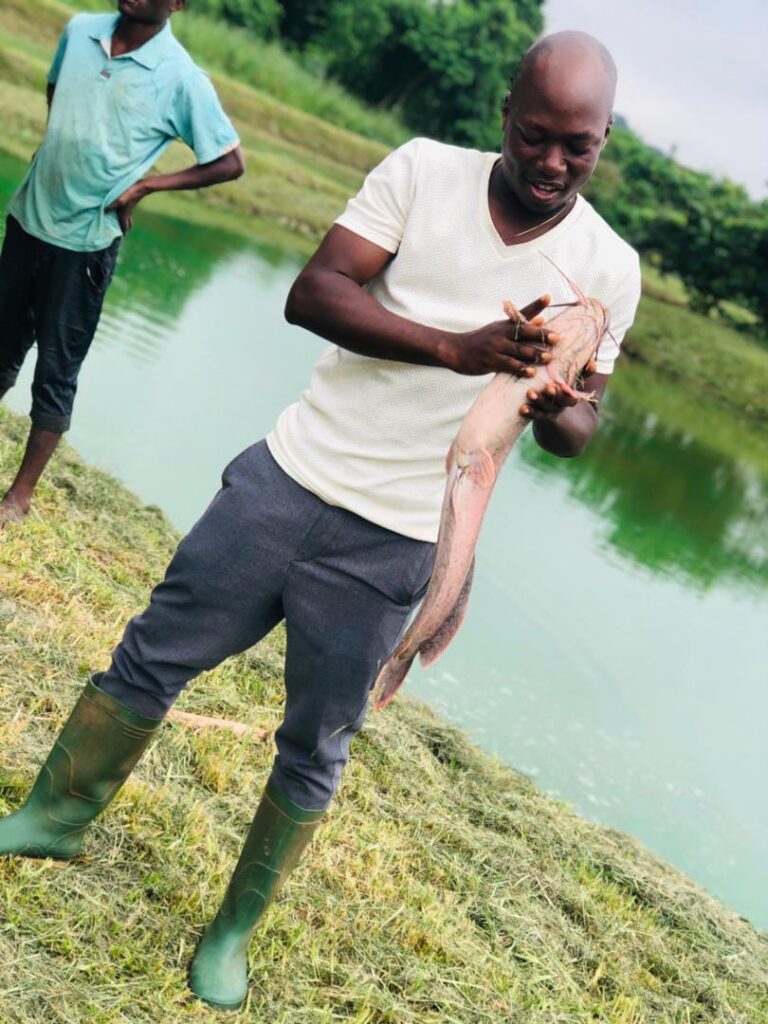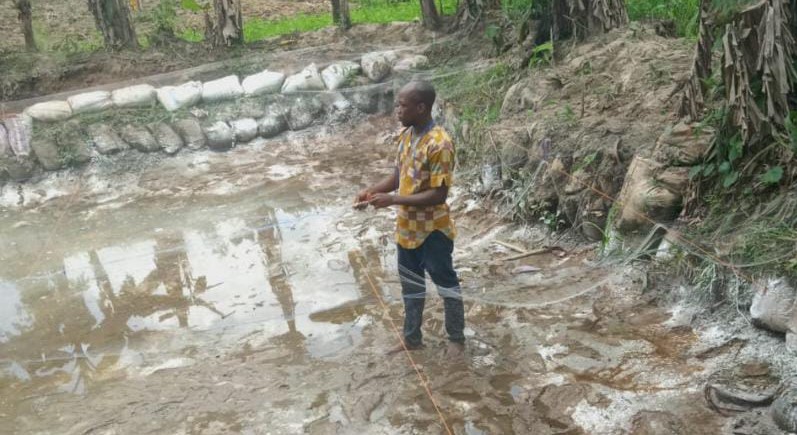

Oluwole Okunola, a graduate of the National Open University Nigeria (NOUN), is the Chief Executive Officer of Haremex Farms. He is a fish farmer and spoke on a number of issues bordering on how he started the catfish farming business, why fish farming is good, successes recorded so far in the venture, challenges associated with fish farming, contributions of fish farming to the Nigerian economy, words of advice to young farmers, and the role expected of the government in that line of business. More importantly, he has made a case for rich database in Nigeria on loan opportunities, equipment and technology for fish farmers to excel. Excerpts:
Can we meet you
My name is Oluwole Okunola. A graduate of the National Open University Nigeria (NOUN). I bagged a BSc degree in Entrepreneurship and Business Management. I hail from Ibadan, Oyo State, Nigeria. I am the Chief Executive Officer of Haremex Farms.
How I started my catfish farming business
A journey of a thousand miles starts with a step, which I boldly took after examining the ‘pros and cons’ before going into the business world. During my teenage years, my father was into poultry business and piggery, which entail that I must forcefully take care of the pen and the pigs even though, I did not know that it is what I will later venture into. Meanwhile, during this period, I took interest in knowing more about agriculture, but fishery was not among our family agricultural business then. It was during my university days that I sat down to look for a way forward after graduating from school. What will I be doing? Why should I be doing this? For how long should I do it? Will I make profit in the course of the business? What are my goals and objectives in starting the business and what are the challenges I will face before succeeding. These took me a while before getting it right after reading a lot of journals, articles, and surfing the Internet regarding this business. Little did I know that there was an organisation that is into research and whose aim is to nourish African agriculture in different forms. When I was about to graduate from the university, I had an encounter with a man, who was into catfish production and hatching. I requested for training from him, which he accepted to do for me with little amount of money. This makes me happy that, at last, I was able to see who is to mentor me in realising my life ambition. After two months of training, I saw an advertisement placed by the International Institute of Tropical Agriculture (IITA) in collaboration with the African Development Bank (AfDB), under the Youth in Agribusiness Compact (ENABLE-TAAT) project with lots of agribusiness commodities such as vegetables, aquaculture, maize and cassava, to be trained in them, out of which I opted for aquaculture in which its training was meant to last for six months. During the course of training, a lot of things were being taught like hatching, pond production, pond designing, pound management, value addition and packaging, to meet export standards. After that, I ventured into the business, but there was a delay in operation due to the fact that there was no running capital to start with. But after a while, the story changed. I went, I conquered and I acquired the skills – technical, managerial, leadership and soft skills. I later embarked on the business and a number of successes have been recorded.
Why go into fish farming
According to the value chain analysis conducted by the Federal Ministry of Agriculture and Rural Development of Nigeria, statistics show that the nation’s aquaculture production of catfish amounted to an estimated 1,260,000 tons per year. However, this gave us an edge toward venturing into the business to make sure there is availability of catfish. This also bring forth job opportunities, food sustainability, and changing the mindset of youths toward agribusiness in the country as a whole. It also increases the gross domestic product (GDP) of any country engaging in mass production.
Successes recorded so far
Successes recorded so far are in the areas of business expansion, job creation, adding value to streamline of business, and increase in target customers. Also, we have engaged young people by training them on fish farming, even though they are still at an early stage of life. We have been able to go for mentorship training programmes in this line of business towards changing the mindset of people regarding agri-business.
Challenges associated with fish farming
A lot of challenges and risks are attached to the catfish farming business, which make it difficult for farmers to break-even, and which can also make the farmer run out of business. These are: cost of feeding, raw materials, availability of market, inflation, theft, and flooding, to mention a few.
Contributions of fish farming to the Nigerian economy
Catfish farming has contributed to the Nigerian economy in various aspects such as job creation, increase in GDP, boost in protein food of which catfish remains one of the most proteinous fish because it consists of Omega-3 Acid, which is good and healthy for human consumption. Also, it helps at bringing in different streamlines of businesses into the country. However, this line of business that we are talking about, will bring another set of business into existence such as aquaponics farming, polyculture and circularity. It means that in every disadvantage, there will always be an advantage such that people with business mindset, or prospective business men and women, would be able to accommodate or inculcate them into their businesses.
Advice to the prospective fish farmer
For a prospective fish farmer, I will urge you to make sure that you undergo training before venturing into the business as we all know that what you learn and have passion for will always bring food to your table. Be ready to ‘Learn, Unlearn and Relearn’, then you will succeed. Also, catfish farming is not just a day profit-making business, but rather, different streamline of catfish businesses also create job opportunities for people.
On government’s intervention for catfish farmers
We urge the government to be helpful in the aspect of making sure there are subsidies in the raw materials being used in producing feeds and reduce or even eradicate the importation of fish from other countries as this will jeopardise our economic values and productivity. Also, the government should create a valid database for catfish farmers where a lot of useful information on loan opportunities, equipment and technology will be available and easily accessed without any hindrance.



